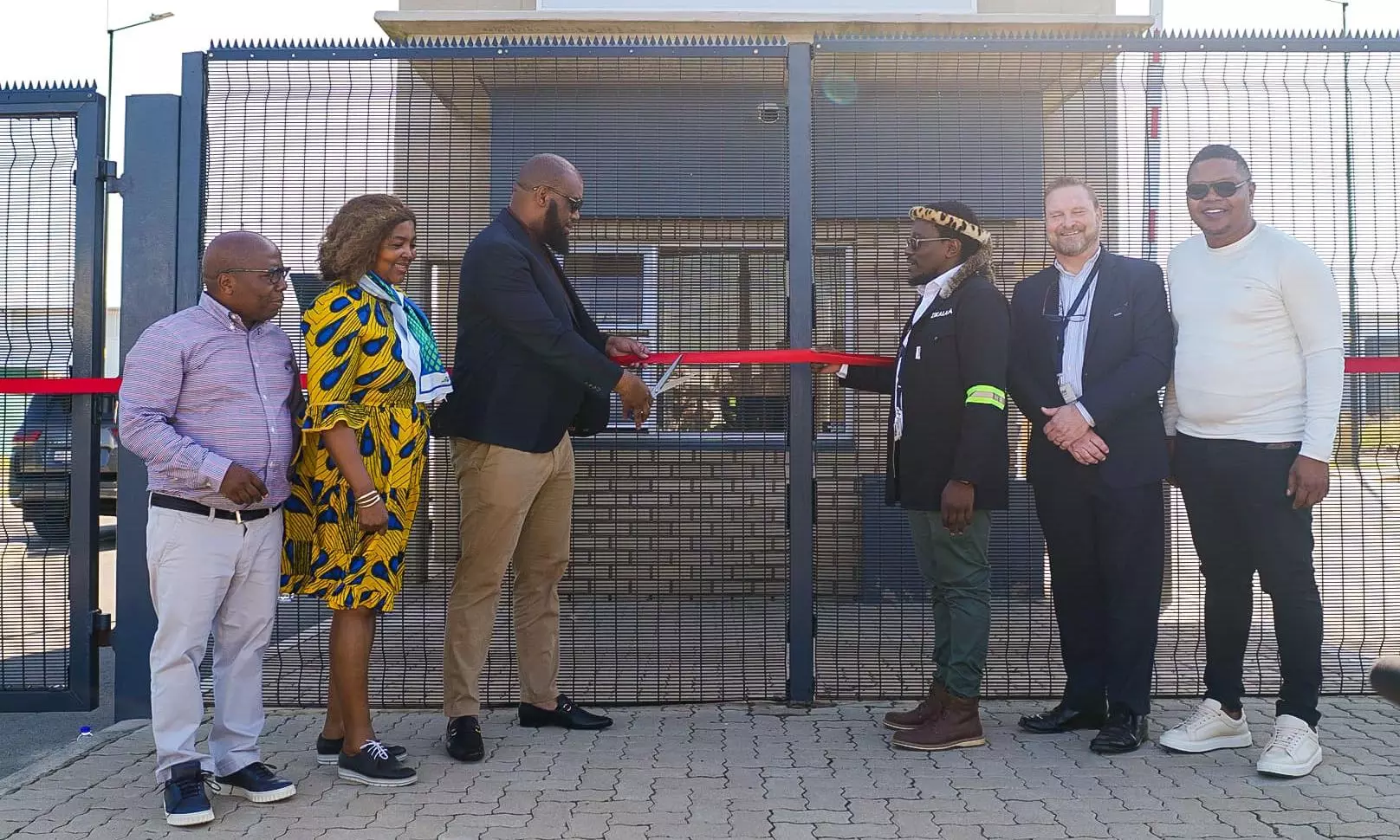DTPC launches Dube TradeZone 2, attracts heavy early investments
The special economic zone adjacent to the King Shaka International Airport has already attracted R1.8 billion in investments.

Dube TradePort Corporation (DTPC) has launched the second phase of its industrial precinct and special economic zone (SEZ) adjacent to South Africa's King Shaka International Airport. The ceremony marked the inauguration of Dube TradeZone 2, showcasing two factories that are currently under construction and worth over R180 million. Dube TradeZone 2 is expected to create around 600 jobs within the next five years, as stated in an official release.
Dube TradeZone 2 is spread across 45 hectares of industrial land for development and comprises 23 fully serviced sites ranging in size from 3,000m² to 57,000m². The precinct will have three Dube TradePort-owned warehouses, including one that can accommodate medium-sized businesses, thus facilitating the expansion of small businesses located in the mini-factories.
The two factories showcased at the launch include the "R166-million Yangtze Optical Africa Cable plant and R17.5-million development by HRMP, a 100% Black, South African-owned logistics company that specialises in the warehousing and distribution of graphite electrodes. This new facility was funded by Ithala Development Finance," as stated in an official release.
Siboniso Duma, MEC for the Department of Economic Development, Tourism, and Environmental Affairs (EDTEA), Kwazulu-Natal Province, Republic of South Africa, welcomed the investment in celebration of 30 years of Freedom and Democracy and also noted the establishment of Special Economic Zones. He cited this investment as a clear indication that SEZs are instruments for job creation and economic development.
At the launch, DTPC board chairperson Mpumelelo Zikalala announced securing seven private sector investors for Dube TradeZone 2, with four already on site despite the challenging economic conditions of the past two years.
Dube TradeZone 2's launch follows the success of Dube TradeZone 1, which is now fully occupied by 50 investors, including Samsung, DHL, Mahindra, and PepsiCo-Futurelife. The special economic zone has attracted R4.6 billion in private investment and created over 5,000 jobs. In 2023-2024, Dube TradePort tenants exported goods worth R610 million.
"As the government, we are focusing on SEZ for a good reason. They are designed for specific developmental purposes, such as developing export-orientated industries, attracting foreign direct investment and technology transfer, and generating employment opportunities. The SEZs stand to be an effective instrument to resolve the disturbing levels of inequality, poverty and unemployment, which are strongly marked by spatial, racial, class and gender factors," said Duma in an official release.
"In addition to job creation, SEZs are broadening the municipal revenue collection base to improve the quality of life in the municipal areas and the quality of municipal services. This makes SEZs one of the key instruments for municipal economic growth and development," Duma further explained. Moreover, the official release stated that the latest investment is expected to deliver an additional 250 jobs over the next five years.
Dube TradeZone 2 will target investors in the manufacturing and assembly, logistics, and automotive sectors while facilitating the planned expansion of several phase one-based enterprises. Dube TradePort aims to become Southern Africa's top air logistics and manufacturing platform through these initiatives.


